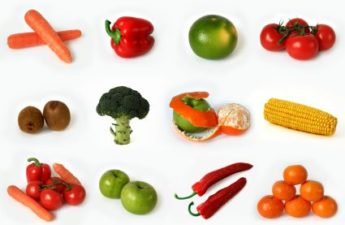Category: Nutrition
Bowel cancer is on the rise in under-50s – here’s what might explain the trend
Our increasingly sedentary lifestyles and the rising consumption of highly calorific, nutritionally poor foods probably plays a critical role in the generational changes in bowel cancer incidence we’re seeing. Such diets became increasingly commonplace through the US and parts of Europe in the 1970s – before spreading to other countries as a side-effect of economic development.
New Study Links Millions of Diabetes and Heart Disease Cases Globally to Sugary Drinks
A new study estimates that sugar-sweetened beverages contribute to 2.2 million new diabetes cases and 1.2 million new cardiovascular disease cases annually. The impact is particularly severe in developing countries, where sugary drinks are heavily marketed and contribute to a significant portion of new diabetes and heart disease cases. The study’s authors call for urgent interventions, including public health campaigns, advertising regulation, and taxes on sugary beverages.
Five healthy diet staples that may interact with prescription drugs
While there are many benefits that can come from following a healthier diet, it’s important that any diet changes are made carefully. This is especially true if you’re someone who takes a prescription drug, as many health food staples can negatively interact with them.
Even small diet tweaks can lead to sustainable weight loss – here’s how
It’s a well-known fact that to lose weight, you either need to eat less or move more. But how many calories do you really need to cut out of your diet each day to lose weight? It may be less than you think.
Why your spin bike has become a clothes rack – and what you can do about it, according to behavioral science
Research shows a quarter of us fail to stick to our New Year resolutions after just one week and more than half within six months. At the end of two years, only 20% succeed.
Five ways to cut your risk of cancer – by an oncologist
By adopting healthy lifestyle choices, you’re not only reducing your cancer risk but also improving your overall health and wellbeing, and you’ll probably be happier with your new self too. It’s never too late to start making positive changes that can have a lasting impact on your health.
What if you could rank food by ‘healthiness’ as you shopped?
Nutrient profiling systems use algorithms to simplify picking healthy groceries
Junk food and drug use cut into life expectancy gains for states
Bad habits such as junk food, smoking and illicit drug use are preventing longer lifespans even as technology brings major progress in diseases such as cancer and heart disease, according to a new study by the Institute for Health Metrics and Evaluation at the University of Washington.
Nine of the 10 states (all but North Dakota) with the longest life expectancies for babies born this year are dominated by Democrats, and all 10 have expanded Medicaid under the Affordable Care Act. All 10 states with the shortest life expectancies are controlled by Republicans (though Kentucky has a Democratic governor), and they include five of the 10 states that have not expanded Medicaid.
You could be stress eating these holidays – or eating your way to stress. 5 tips for the table
Stress eating can include binge eating, grazing, eating late at night, eating quickly or eating past the feeling of fullness. It can also involve craving or eating foods we don’t normally choose.
How mother’s diet affects baby’s health: What insights from different cultures can tell us
A high-quality diet in pregnancy and healthy weight before pregnancy can reduce the risk of gestational diabetes and reduce the chance of transmitting this risk to one’s offspring.
Scientists Fear What’s Next for Public Health if RFK Jr. Is Allowed To ‘Go Wild’
Should Kennedy win Senate confirmation, his critics say a radical antiestablishment medical movement with roots in past centuries would take power, threatening the achievements of a science-based public health order painstakingly built since World War II.
Dietary restriction or good genes: new study tries to unpick which has a greater impact on lifespan
The genetic cards we’re dealt dictate how long we can expect to live. Just as important in this study, however, lifestyle interventions such as diet and exercise that aim to improve lifespan should be effective regardless of the genes we have.
Poppy Seed Brew Triggers Morphine Overdose, Drawing Attention of Lawmakers
After eating lemon poppy seed bread or an everything bagel, mothers reportedly have been separated from newborns because the women failed drug tests.
Poppy seeds come from the plant that produces opium and from which narcotics such as morphine and codeine are derived. During harvesting and processing, the seeds can become coated with the opium fluid.
What is ‘health at every size’ lifestyle counseling?
How does it compare with weight-focused treatments?
Health News Headlines
Which ultraprocessed foods are worse? – HPV vaccine – Mpox – Drug ads














